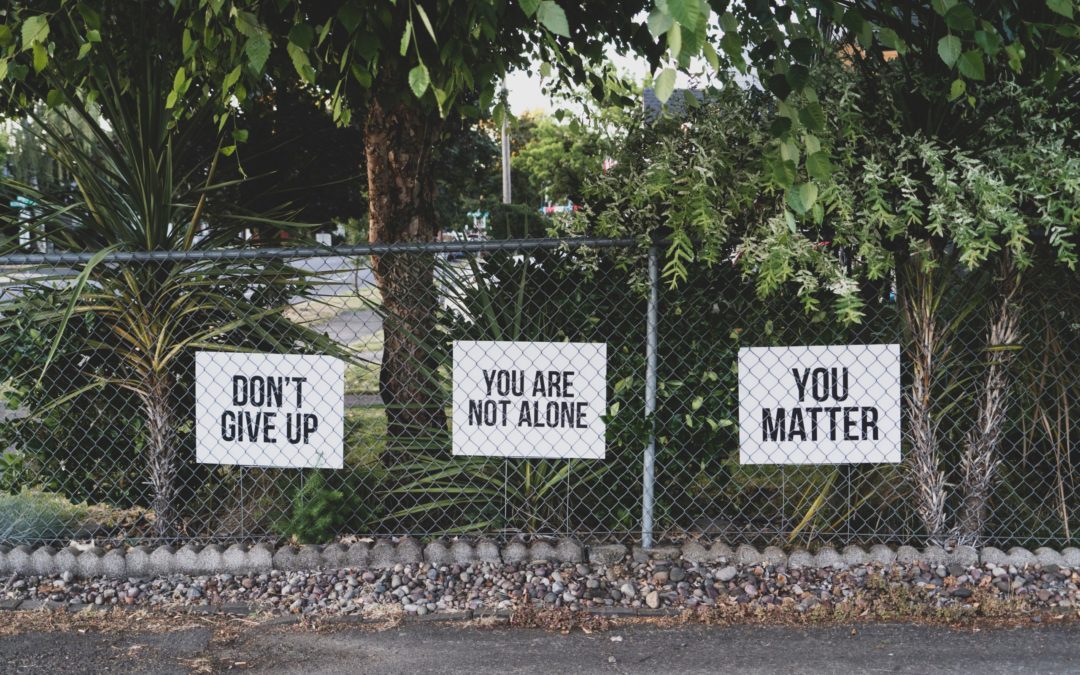“Be Kind to Your Mind”, that’s the mantra that we live by and one that we are preaching, even more, this month. May is Mental Health Awareness Month and it is a month dedicated to smashing the stigma that surrounds mental health in an effort to help those who have been suffering in silence. Unfortunately, there is a massive stigma that casts a shadow over mental health, causing people to feel as though their issues are not normal. However, this couldn’t be further from the truth. Mental health is something that many people suffer from and it’s about time that we reconsider how we talk about it. Rather than making people feel like they’re alone in their struggles, let’s work together to remind them that it is not a strange thing to have issues with. In this article, we’re going to discuss mental health awareness month and what we can do to stop the stigma around mental health.
You Are Not Alone
This phrase is one that we need to emphasize more often. “You are not alone” seems like such a small thing to say, but it carries a lot of meaning to it. Letting people know that they are not alone in their struggles helps them realize that their struggles are not necessarily exclusive to them. Yes, there are many reasons why someone may be struggling with mental health, but there are millions of people that are having the same struggles. To help you understand just how serious mental health is in this country, let’s discuss some of the facts and statistics.
Facts To Know For Mental Health Awareness Month
Since 1949, Americans have observed May as the month for mental health awareness. Mental Health America has been helping Americans get the education and resources needed to fight the stigma around mental health. Most people believe that mental illnesses only occur in certain groups of people, but the reality is they can occur in any of us. One statistic that may alarm you is that 1 in 5 Americans are currently are suffering from or have previously suffered from a mental illness. Even more alarming is that 1 in 25 Americans currently live with a serious mental illness.
For people that suffer from serious mental illnesses, they often have to deal with ones like major depression, schizophrenia, bipolar disorder, and many others. It’s also estimated that 1 in 10 young Americans experiences at least one period of major depression. Every year, mental illnesses claim 48,000+ lives … 48,000 too many. Suicide is now currently the 10th leading cause of death in this country, which is about 14.2 deaths per 100,000. Suicide accounts for approximately 1.7% of recorded deaths in the U.S. These are some staggering statistics and shows just how serious mental health issues are in this country. Now, let’s discuss some of the myths that surround mental illnesses and mental health.
Common Myths About Mental Health
Now that we’ve talked about some of the statistics on mental health, let’s discuss some of the common misconceptions that we often see.
Myth #1 – “People that suffer from mental illnesses have personality weaknesses or character flaws.”
This is a common misconception that people are raised to believe. This is simply not true. There are so many factors that contribute to mental illness, none of which are personality weaknesses or character flaws. Most often, people develop mental illnesses through traumatizing experiences, genes, family history, illnesses, injuries, brain chemistry, etc.
Myth #2 – “Mental illnesses are impossible to recover from.”
Once again, another false presumption. Yes, mental illnesses are difficult to manage and cope with, but it is entirely possible to recover from them. Through individual or group therapy, counseling, education, self-care practices, support groups, etc. a person can work towards overcoming their mental illness.
Myth #3 – “There’s nothing you can do for a person suffering from a mental illness.”
This is simply not true. Yes, trying to help someone with a mental illness can be tough at times, but there are ways that you can help them without putting too much burden on yourself or the individual that is suffering. Some great ways to help the person is by letting them know you’re there to talk when they need it, offer mental health resources/education, educating yourself on mental health, giving them space when they need it, and helping them understand that they are not “crazy” for having these kinds of issues.
Myth #4 – “These sorts of issues are not preventable, they just happen.”
Once again this is not true. Mental health disorders can develop from family history or genes which a person cannot change, but they can be prevented. When we work towards prevention, a person who has struggled with mental health can see a great improvement in their lives if prevention is implemented. When measures of prevention are implemented in a community, it can see better education outcomes, stronger economies, improved quality of life, increased life span, and many other benefits.
As we’ve gone over the facts and myths of mental health, it’s time for you to take this information and help spread it. With a more educated community, we can help improve the well-being of people across the country and the world. There are many ways we can work together to fight against the stigma of mental health disorders. Let’s use may as a month to not only bring awareness but to continue to help those who are currently suffering or are more susceptible to suffering from mental health disorders. Mental health is a serious issue in this country and it’s only getting worse, but that doesn’t mean the fight is hopeless. May is dedicated to fighting this issue, but let’s continue to fight this epidemic even after this month. If we work together, we can help millions of people across the world. Fight the stigma!

